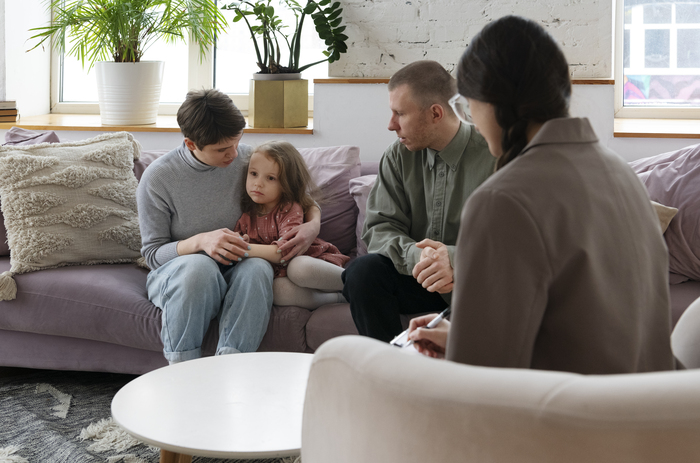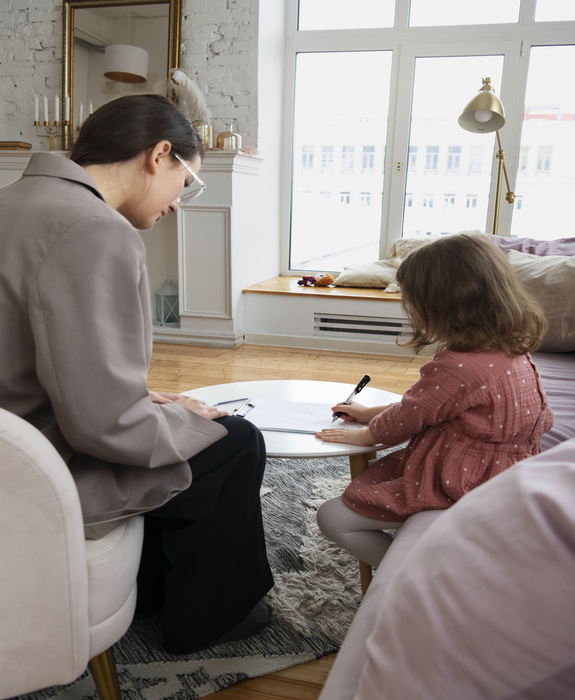Raising a child is a difficult and intimidating proposition but can be extremely fruitful if you do it well. There are multiple challenges, some new-some old, but you must make sure that your child is confident, kind and successful. But things become a little more difficult to handle when the other parent is a drug addict. Co-Parenting with a drug addict is an entirely new challenge but not an excuse good enough to let a child’s future suffer.

The task is difficult, but taking the challenge head-on will secure your child’s future. It is important to acknowledge that there are no simple answers or one-size-fits-all advice. However, with our understanding of different scenarios, and the severity of addiction, including the dangerous ones, we can lay down a list of measures that can help you cope with the challenge of co-parenting with a drug addict.
It is crucial to understand that there are two challenges of co-parenting you need to fix when your partner is abusing drugs:
-
Your emotional health:
A partner consuming drugs is not only damaging his body but also causing emotional trauma to the people around him. And the one that suffers the most is their partner. The dynamics between the partners is strained, trust is shattered, and communication is compromised. But it is in the best interest of your child to put aside your differences and focus on how to avoid ill effects on the child.
-
Your Child’s emotional health:
Your child’s emotional health should be the primary concern. A child is emotionally attached to both parents and needs attention and support from both. It becomes your duty to maintain open lines of communication, be flexible and seek professional guidance when necessary. This will ensure that parental differences are not bottled down to the child.
Challenges of Co-Parenting: Identify the problem
Inherently challenging, co-parenting becomes even more complex when drug addictions are involved. The process of being a parent becomes more complex and fraught during the process, from handling complex issues every day to making difficult decisions, all while working through the day-to-day routine. It is important to focus on balancing priorities, sharing responsibilities and quickly switching between the needs of the child, the family and yourself.
- Inconsistent behaviour: Drug addicts show inconsistency in their behaviour and parenting. They cannot be trusted with parenting responsibilities.
- Financial instability: Drug addiction can lead to financial instability, which limits a co-parent’s ability to contribute financially to their children’s care. The other co-parent is financially burdened, and experiences stress as a result.
- Unpredictability: An addict may exhibit mood swings, erratic behaviour, and poor decisions. This will decrease communication and dependency.
- Safety concerns: If the addiction is severe, it may lead to safety concerns when the child is under their care. The addict may also resist help and treatment, leading to even more concerns.
- Legal issues: Any illegal or harmful act against you or the child may cause legal issues for the addicted partner.
- Communication Challenges: Effective communication is imperative for co-parenting. Addicts may become unresponsive, uncooperative and cause difficulty in coordinating parenting responsibilities.
- Fear of Relapse: Addiction is a chronic condition, and relapse is not uncommon. It leads to instability and uncertainty in the co-parenting relationship.
- Impact on the child: The child is prone to emotional neglect, instability and exposure to harmful situations causing behavioural and emotional issues.
- Trust Issues: The other co-parent may struggle with trusting the addicted co-parent, especially when they have broken promises or neglected their parental duties.
- Emotional Strain: The other co-parent may feel overwhelmed, frustrated, or resentful when co-parenting with a drug addict; affecting the well-being of the child.
- Parental Alienation: Due to their addiction, the addicted parent may try to turn their children against the other parent. It can create a toxic environment for the children, making it harder for the co-parents to get along.
- Legal Battles: Addict co-parent may have difficulty maintaining legal custody of the children. A legal battle is emotionally and financially draining for both co-parents.
- Impact on Co-Parents’ life: It may affect the mental health, social life, and career of the other co-parent. It may become difficult to balance your needs with the needs of the children.
- Stigma and shame: Often, addiction is stigmatized and causes shame or embarrassment.
How to Overcome Co-Parenting Challenges: Rebuild from the ground up
Co-Parenting Challenges, when taken with the right measures and approach, can yield desired results. The addicted co-parent can overcome their addiction through proper treatment, support, and a commitment to work on their family. They may become more dependable in fulfilling their parenting responsibilities as they progress in their recovery journey. Navigating this complex situation requires courage, patience, and perseverance. Use the knowledge of the following to your advantage:
Gather More Information through meaningful conversations
If substance use is anywhere from moderate to severe, it is recommended to have meaningful conversations with the addict co-parent without ever deviating from the topic or getting egoistic. Remember that you are talking with a patient of drug abuse and probably some degree of mental illness. Asking questions about how they manage stress or “work/kid/life” balance may reveal information about any possible substance use for stress management.

Suggest seeking professional help
It may not seem right to tell your partner to see a professional, but it will be the most help that you can draw to him in terms of expertise and assessment of their substance abuse. It is noteworthy that therapy options like support groups, individual therapy, therapy for outpatients and rehab facilities have shown positive results.
Set Healthy Boundaries
It is vital to have compassion and yet be able to set boundaries with the addicted co-partner to keep yourself and the child safe from any unwanted harm. You can opt for phone or video calls instead of in-person visits.
Educate yourself about substance abuse
It will speed up the process of your partner’s recovery if you educate yourself on how to help or at least helpfully co-exist. Start therapy on your own, go to meetings or visit support groups to help them find the right way.
Focus on the Child’s best interests
Keeping the child’s best interests in focus will encourage both cooperation and compromise. It will also help in maintaining a healthy co-parenting relationship.
Use of Planning and Time management tools
This will facilitate easy and timely communication about schedules etc. and minimize the disputes resulting from miscommunication.
Assess the severity of their addiction
Addiction is a disease and it is sometimes not worthwhile to question how bad it is. After all, when you are ill, you should get treatment regardless of the severity. But because addiction presents differently in different people, the severity of the illness is pertinent in determining how to co-parent.
The fact is that if your co-parent is high all day every day, you’re going to approach the situation very differently than if they get high only at night after work. Of course, it is not usually that simple, and there are infinite variations of when and how your co-parent might use drugs.
Ideally, you should assess how severe their addiction is with a trained professional. This is not always possible, as they may not be willing to seek help. In this case, there are some questions you should consider:
- Are they a danger to themselves? If you worry about their safety due to their drug addiction, it is severe enough for it to be a major issue in your co-parenting. You will not feel safe leaving your kids with them.
- How much does their personality swing? With some drug addicts, it is difficult to tell that they are using drugs. They are able to stay fairly consistent in how they relate to others. However, many addicts have personality swings, leading them to become aggressive and even abusive. If you can’t rely on them acting like the same person throughout the day, they have a severe problem.
- Do they use more than they used to? Addictions tend to get worse when not treated. If your co-parent is using more than they did a week or a month ago, they are likely to start using even more as time passes and their body comes to depend on substances. The more they use, the more difficult it is for them to stop.
Take their treatment into account
What if they are getting treatment, whether from an addiction expert or a rehab? This is a great first step, but it does not mean you’ll feel comfortable co-parenting with them just yet. In this case, your decisions should be made with their treatment in mind. Their journey as a healthy parent can become a significant part of their recovery.
This is not to say that your child’s wellbeing should be used as a tool in their treatment. Rather, you can find a healthy balance in which they get more access and participation in your child’s life as they recover. Working with their doctor or therapist, you can come up with a plan together to do what’s best for your child.
Many people co-parenting with drug addicts struggle to bring their child into the process because they don’t want to expose them to the ugly side of life. Unfortunately, there is no way of completely hiding that something is wrong with their other parent. By working together with your co-parent and their treatment professional, you can come to an agreement as to how to speak to your child about what is going on.
Consider custody changes if necessary
If your co-parent is not in treatment and is getting worse, you may no longer trust them with your child. However, it can be difficult to keep them out of your child’s life, especially if you already have custody arrangements in place. You’re legally obliged to keep to those arrangements, but should not do so if your child is unsafe.
Taking legal action against your co-parent is far from ideal, but if it is necessary to keep your child out of danger, you should consider doing so.
Changes in custody will not be easily won, especially if your co-parent has not been diagnosed with an addiction disorder or done anything dangerous or illegal. The best outcome in this case is that you negotiate with them in the presence of your lawyers. You may be able to help them understand your concerns and that any arrangements you make are meant to be temporary.
Find a child psychologist

Co-parenting with a drug addict poses many challenges. By gathering more information, establishing healthy boundaries, taking care of yourself, and managing your children’s safety, you can compassionately provide support. The two co-parents may not be in an intimate, committed relationship, but you are committed to raising the child the best way you can.
A good child psychologist will be able to help them understand what is going on in a way that is sensitive and helpful. They will also be able to give you advice on how to co-parent your child in the most effective way.
Co-parenting with a drug addict is not easy and there are no easy solutions. Use the above guidelines to start considering your potential course of action. Speak to a professional when making any decisions.




